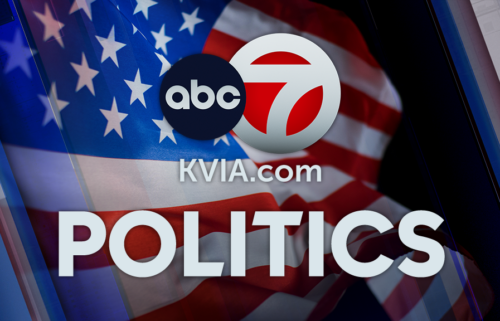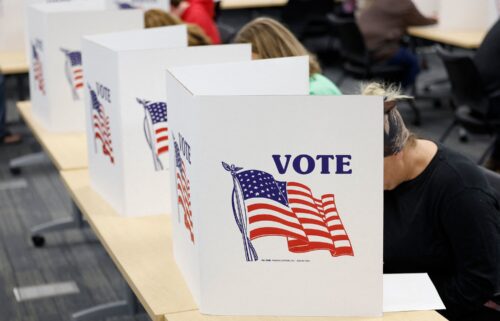January 6 committee’s interest in Meadows goes beyond conversations with Trump

By Zachary Cohen, Annie Grayer and Ryan Nobles, CNN
Members of the House committee investigating January 6 said on Thursday that many of the questions they have for former White House chief of staff Mark Meadows have nothing to do with then-President Donald Trump — suggesting that the panel is still open to discussing the terms of a potential interview.
The House select committee has been trying to get Meadows to comply after he defied its subpoena, failing to turn over documents and show up for his deposition last week. Two committee members indicated there are several lines of inquiry that would not be covered by executive privilege.
Rep. Pete Aguilar told CNN on Thursday that Meadows, one of Trump’s closest advisers, might have a “minor claim” to executive privilege over some conversations but emphasized the committee has questions for him that “have nothing to do with the conversations he had directly with the President.”
“His conversations about stopping a free and fair election, about criticizing and stopping the counting of electoral votes, about his coordination with campaign officials on private devices that were not turned over, all of those issues are not privilege worthy and he has some explaining to do,” the California Democrat added.
Rep. Jamie Raskin, another select committee member, also told CNN on Thursday that the committee has “lots of questions {for Meadows} that have nothing to do with Trump personally.”
“We want Meadows to come in and testify on everything of interest to us,” he said. “If he thinks there are some questions that are covered by either executive privilege or the Fifth Amendment privilege against self-incrimination, he can invoke it and a court can settle it later.”
“But there are certainly a lot of questions that are not even arguably tangentially related to privilege. And those you have to answer,” the Maryland Democrat added.
The statements come after the current White House indicated last week that concessions do not need to be made for Meadows, notifying him that President Joe Biden will not assert executive privilege or immunity for him on matters related to the probe.
The day after that notification, Meadows was a no-show for a scheduled deposition.
Previous congressional inquiries have made concessions to close presidential aides. In the late 2000s, in a legal battle over getting testimony from former White House counsel Harriet Miers, the Obama White House engineered a deal that allowed a House committee to conduct interviews it wanted with Miers and former White House chief of staff Josh Bolten by making questions about direct communications with former President George W Bush off limits.
A select committee aide told CNN that the panel has not taken any subjects in a potential interview with Meadows off the table and expects to get all the information it is seeking.
Meadows’ attorney did not respond to CNN’s questions about possible negotiations on Thursday.
Ahead of his scheduled deposition last week, Meadows’ attorney, George J. Terwilliger III, issued a statement saying his client would not cooperate with the committee until courts had ruled on former President Donald Trump’s claims of executive privilege, noting “a sharp legal dispute with the committee.”
Aguilar also noted Thursday that there are ways to discuss specific claims of privilege but Meadows is still required to talk to the committee.
“If there were privileged claims, there’s a way to address them. What Meadows is saying is he has absolute privilege; he doesn’t have to have conversations with us. The courts don’t agree with that, past precedent hasn’t agreed with that, and Congress has never indicated with that,” he told CNN later Thursday, expanding on his previous comments.
Aguilar added that the record the committee is building shows the large portion of the information it is looking for does not relate to the executive privilege claims that Meadows is making.
Last week, White House Deputy Counsel Jonathan Su wrote to Meadows’ attorney, informing him of Biden’s decision, and once again cited “the unique and extraordinary circumstances where Congress is investigating an effort to obstruct the lawful transfer of power under our Constitution.”
Su noted that Biden has already determined that executive privilege does not apply to particular subjects within the committee’s purview, including “events within the White House on or about January 6, 2021; attempts to use the Department of Justice to advance a false narrative that the 2020 election was tainted by widespread fraud; and other efforts to alter election results or obstruct the transfer of power.”
The chairman of the House select committee, Democratic Rep. Bennie Thompson of Mississippi, said Wednesday that he was signing a letter to send to Meadows outlining everything the committee wants to learn from him, as the panel weighs whether to pursue a criminal contempt referral.
This letter would be key to marking the trail of communication between Meadows and the committee, and crucial to building out an eventual criminal contempt referral report, if the committee chooses to go that route.
A key question that the committee has said it wants answered by Meadows is whether he was using a private cell phone to communicate on January 6 and where his text messages from that day are.
“We have information that that phone may or may not be in his possession. That number is not active anymore that he used, so we just want to know,” Thompson has said.
The-CNN-Wire
™ & © 2021 Cable News Network, Inc., a WarnerMedia Company. All rights reserved.


